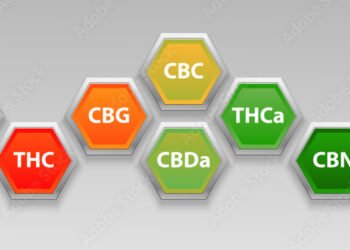Introduction
Cannabis for medical use has sparked significant interest and debate worldwide. In Ireland, the conversation revolves around its potential benefits and the regulatory framework governing its use. This article delves into the background, policy context, and the intricacies of medical cannabis use in Ireland, providing valuable insights for patients and healthcare professionals alike.
The Background and Policy Context of Cannabis for Medical Purposes in Ireland
The discussion around cannabis for medical use is driven by a growing public interest and a desire for alternative treatment options. The Health Products Regulatory Authority (HPRA) conducted a comprehensive review in 2017, which highlighted that while there is some evidence of the benefits of cannabis for certain medical conditions, the overall quality of evidence remains limited. The HPRA recommended that medical cannabis should be available under a structured and supervised clinical program, specifically for patients who have not responded to approved treatments and where there is modest evidence of effectiveness.
Differences Between the Main Active Components of Cannabis
THC (Tetrahydrocannabinol)
THC is the main psychoactive component of cannabis, responsible for the “high” associated with its use. Due to its psychoactive properties, THC is strictly controlled under the Misuse of Drugs legislation. This control means that any medical use of products containing THC requires a special Ministerial licence.
CBD (Cannabidiol)
CBD, in contrast, is a non-psychoactive component that has garnered attention for its potential therapeutic benefits without the intoxicating effects of THC. Products containing only CBD are not controlled under the Misuse of Drugs legislation, allowing for easier access and use in medical treatments.
Legal and Policy Position on Access to Cannabis for Medical Use
The legal framework governing cannabis for medical use in Ireland is outlined in the Misuse of Drugs Acts 1977 to 2016 and related regulations. Under the Misuse of Drugs Regulations 2017, psychoactive cannabis products are listed in Schedule 1, indicating strict control measures. The Minister for Health can issue licences for medical cannabis use, but these licences are granted to medical practitioners for named patients, rather than directly to patients.
Application Process for Medical Cannabis Licence
The application for a medical cannabis licence must be submitted by an Irish-registered medical practitioner. The process requires the endorsement of the patient’s medical consultant, who is responsible for monitoring the treatment.
Sourcing Medical Cannabis Products
Currently, medical cannabis products that meet accepted quality standards are not directly available in Ireland. Patients and prescribers often source these products from the Transvaal Pharmacy in The Hague, Netherlands. These products are supplied by BEDROCAN International, a company licensed by the Dutch Office of Medicinal Cannabis.
Challenges and Considerations in the Use of Cannabis for Medical Purposes
Despite the growing interest in medical cannabis, several challenges and considerations remain. The safety and efficacy of cannabis for many conditions are still unproven, requiring cautious and informed decision-making by healthcare professionals. It is crucial that medical cannabis treatments are considered only after conventional treatments have failed and under the guidance of experienced medical consultants.
The Role of Healthcare Professionals
The decision to prescribe cannabis-based treatments lies solely with the clinician, in consultation with their patient. This collaborative approach ensures that the potential benefits and risks are thoroughly evaluated, and the treatment plan is tailored to the individual needs of the patient.
Cannabis for Medical Use: Conditions and Evidence
Chronic Pain Management
One of the most commonly cited uses for medical cannabis is in the management of chronic pain. There is moderate evidence suggesting that cannabis can be effective in alleviating certain types of chronic pain, particularly neuropathic pain. Patients who have not responded to conventional pain treatments may find relief with cannabis-based therapies.
Multiple Sclerosis (MS)
Cannabis has shown potential in managing symptoms associated with multiple sclerosis, such as muscle spasms and stiffness. Some studies suggest that cannabis-based medicines can improve these symptoms, enhancing the quality of life for patients with MS.
Epilepsy and Seizure Disorders
CBD, in particular, has been studied for its anticonvulsant properties. It has been found to be effective in reducing the frequency and severity of seizures in certain types of epilepsy, including Dravet syndrome and Lennox-Gastaut syndrome.
Nausea and Vomiting in Chemotherapy Patients
Cannabis has long been used to alleviate nausea and vomiting, particularly in patients undergoing chemotherapy. THC has been found to be effective in reducing these symptoms, improving the overall comfort and well-being of cancer patients during treatment.
Appetite Stimulation in HIV/AIDS Patients
Patients with HIV/AIDS often experience significant weight loss and appetite issues. Cannabis has been shown to stimulate appetite, helping these patients maintain a healthier weight and improve their nutritional status.
Conclusion
The use of cannabis for medical purposes in Ireland is a complex and evolving issue. While there is promising evidence for its effectiveness in certain conditions, the quality of evidence remains limited, necessitating a cautious and structured approach. The regulatory framework ensures that medical cannabis is used safely and appropriately, with decisions made by qualified healthcare professionals in consultation with their patients. As research progresses and more evidence becomes available, the landscape of medical cannabis in Ireland will continue to develop, offering new possibilities for patient care and treatment.
For more information:www.gov.ie, National Institute on Drug Abuse (NIDA), World Health Organization (WHO)
Read More Articles:THEGREENGHOST.COM
FAQ
What is the main difference between THC and CBD?
THC is the psychoactive component of cannabis, responsible for the “high” sensation, while CBD is non-psychoactive and is known for its potential therapeutic benefits without causing intoxication.
Is medical cannabis legal in Ireland?
Yes, medical cannabis is legal in Ireland, but it is strictly regulated. A licence from the Minister for Health is required for its use, which must be applied for by a medical practitioner.
How can patients obtain medical cannabis in Ireland?
Patients cannot directly obtain medical cannabis. A medical practitioner must apply for a licence on behalf of the patient, and the products are usually sourced from pharmacies in the Netherlands.
For what conditions is medical cannabis considered in Ireland?
Medical cannabis may be considered for conditions such as chronic pain, multiple sclerosis, epilepsy, chemotherapy-induced nausea, and appetite stimulation in HIV/AIDS patients, among others, when conventional treatments have failed.
Who makes the decision to prescribe medical cannabis?
The decision to prescribe medical cannabis is made by the treating clinician in consultation with the patient. The Minister for Health does not make clinical decisions regarding individual treatments.
What are the current challenges with medical cannabis use?
Challenges include limited high-quality evidence on its efficacy and safety, regulatory hurdles, and ensuring that treatments are supervised by experienced medical professionals to safeguard patient health.









